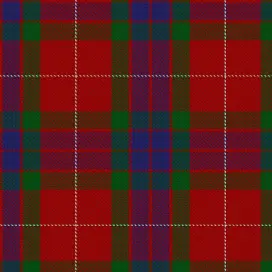I’ve been doing some thinking about how best to publish a pedigree chart that would show the relationships between the various people I’ve mentioned to date and myself, and I admit this is where my newbie status as a blogger shows itself. Indeed, this might be where it would be better to use a regular website and not a service like WordPress, which for all its power doesn’t seem to be very friendly to uploading formatted text, unless one is something of an expert with cascading style sheets and so forth. I’m not, and nor do I really have a desire to be; I’m here to research and write, not spend all my time figuring out how to publish pretty pictures. So, for those wanting to see a fancy chart, I’ll get there, but meanwhile I’ll have to resort to the old-fashioned descriptive text.
Of course, other genealogists (and genealogy bloggers) whose work I’ve followed seem to be of two minds about whether to even publish such charts in the first place. For one thing, it seems there’s a trend toward “genealogy theft”, i.e. people simply lift the result of all your hard work and graft it onto their own family trees, for whatever reason I can’t quite fathom. Why anyone not related to me would want to put my ancestors in their family tree is beyond me, but apparently it happens. I suppose if I manage to somehow, some day, uncover the missing link between myself and some famous historical personage, it could be tempting for someone else with a family name appearing in my tree to “attach” themselves to that famous person. It might look very impressive to their friends, but it wouldn’t be true. Ah well, at this point I’ve not uncovered any such famous ancestors (well, maybe locally famous, but not such that they’d have a Wikipedia page or something).
Belay that last. As I wrote that, I thought to myself, hmm, well, there is a line of ancestors on my father’s mother’s mother’s side that had a fair bit of money in the 19th century, a landed estate in England, and even a (rare) book* about them. Perhaps I should check. Wouldn’t you know it, my great-great-grandfather’s younger brother has his own Wikipedia entry after all. It seems that 3x-great-uncle William Hamilton Yatman (1819-1913) was moderately famous for his feats as a rower while at Cambridge. That, and a property he once owned is today a second home for Prince Charles.
Ok, maybe someone might want to lay claim to some of this line after all. On the other hand, the Yatman family pedigree, at least as far as it went a hundred years ago, is well known, so anything I publish is not exactly going to be news.
Anyway, back to the original point, which was pedigrees for those mentioned so far — and yes, I realize I’ve now mentioned another one in this post. In fact, let’s start with him.
William Hamilton Yatman (1819-1913) was the younger brother to John Augustus Yatman (1817-1894), about whom I will later have more to write. John Augustus (or J.A.Y. as he sometimes signed papers) and his wife Anna Victoria Blachley Turner (1837-1922) had seven children, the eldest of whom was Frances Mary Yatman (1860-1949). Frances (“Gran” to my father) married William Henry Statter (1857-1895), with whom she had three children. She married again after William’s death (a Turner, but no relation to Anna Victoria as far as I can tell) and had two more children. The youngest of her children by her first marriage was Gladys Annie Dinah Statter (1885-1980), affectionately known as “Nin” to those of us who knew her (she hated the name Gladys). So far this has been an entirely English family, but Gladys married a New Zealander, John Fraser (1894-1964), and emigrated back to his country with him. John and Gladys had six children (five who lived to adulthood), second eldest of whom was Robert William Campbell Fraser (1921-present day), my father.
In an earlier post about names, I introduced Alexander Fraser (1802-?) and his wife Grace Campbell (1811-?), residents of Perthshire, Scotland. Alexander and Grace had ten children, second eldest of whom was Robert Campbell Fraser (1838-1905), who emigrated to New Zealand for reasons not yet known to me. There he married a Kiwi girl, Sarah Ann Cliffe (1864-1936), and had eight children, four (or maybe five — I haven’t been able to track down what happened with one of the daughters) who lived to adulthood. Third eldest of those living that long was my grandfather, John Fraser, the one who married Gladys of the Statter/Yatman family.
In The Voyage of the Adamant I introduced James Spratt (1844-1935) and his wife Maria Rawlinson (1844-1909), who emigrated from England to New Zealand. See Emigrants to connect from the Spratts to me through my mother’s line.
* A History of Winscombe Hill and the Yatman Family, by Maria Forbes, published 2005, appears to be a very limited run. I have found exactly one copy for sale, used, and the seller is asking for more than $300. It might have to wait. I have a few tantalizing photocopied pages sent me by my uncle which I believe are from this book, and which show my great-grandmother Frances and great-grandfather William at the time of their marriage. I think the author wrote the book specifically for one modern descendant of the Yatmans, Sue Gunn, to whom it is dedicated, and who I believe may have been the last private owner of the family estate at Winscombe Hall.

